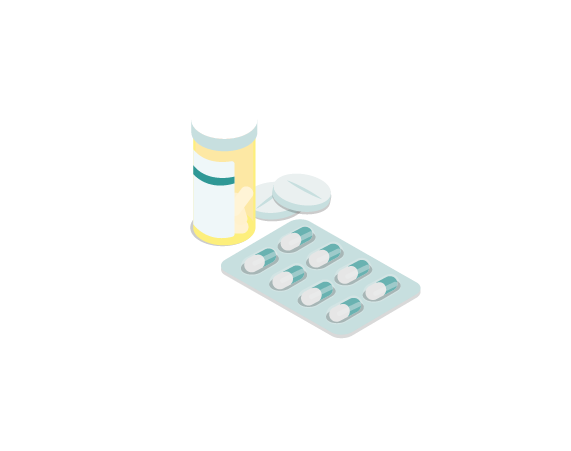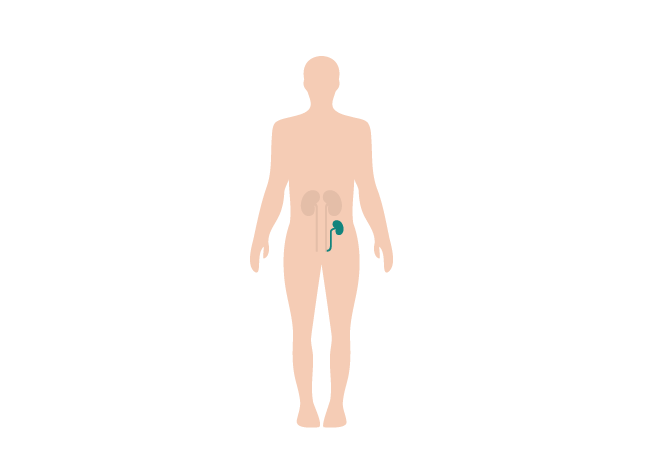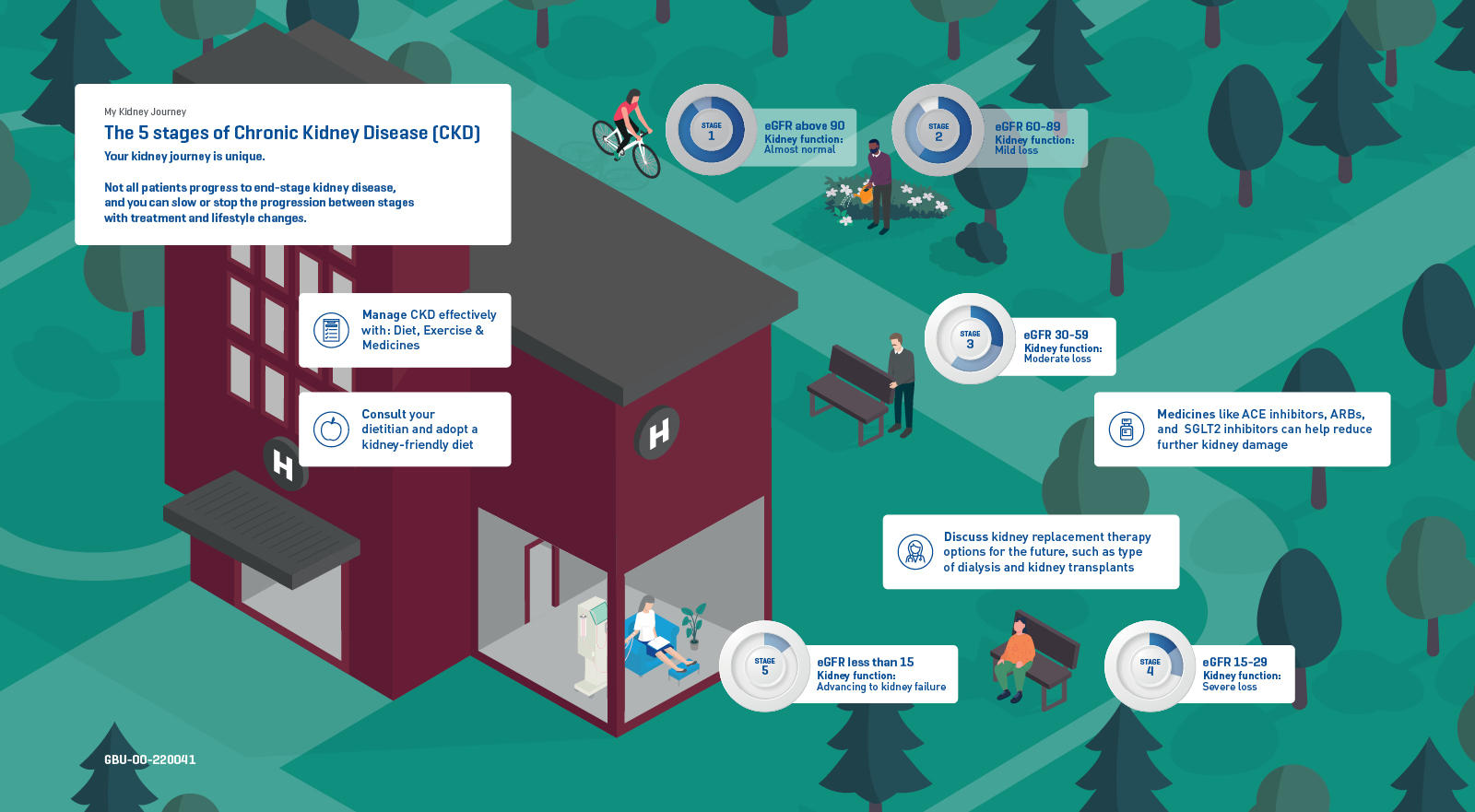Chronic Kidney Disease: Stage 5
Chronic kidney disease (CKD) is a condition in which kidney function declines gradually over time and can possibly lead to kidney failure in some patients. As CKD progresses, the kidneys are unable to filter toxins and excess fluid from the body, leading to the onset of symptoms and the risk of developing other health problems. The term “chronic” does not refer to the severity of the disease but refers to the fact that it is a long-term condition which progresses over years. Treatment for CKD involves slowing its progression and managing related complications.
The 5 stages of chronic kidney disease
Chronic kidney disease (CKD) is divided into 5 stages based on kidney function, and whether there are signs of blood or protein in the urine.
During stage 1, your kidneys are working at an almost normal level, but there may be blood or protein in the urine. There are no symptoms of CKD itself, but there may be symptoms of the underlying diseases causing the CKD, such as diabetes or a glomerulonephritis.
As CKD progresses to stage 2, the loss of kidney function is still mild, and symptoms have not developed. However, people with for example diabetes are often diagnosed during CKD stage 2 and will start on treatment to help reduce the risk of CKD worsening.
CKD stage 3 is a key stage when symptoms may first occur, or kidney disease may be first diagnosed. At this stage, treatment should be undertaken to slow the progression of the disease. Many people live with stage 3 CKD, with only some progressing to the advanced stages. Regardless, undergoing regular assessment and treatment is important to prevent the progression.
CKD stage 4 means there is advanced kidney damage, with a high risk of progression to kidney failure and there need to be discussions and planning for replacing kidney function with dialysis.
CKD stage 5 indicates kidney failure and is also known as end stage kidney disease. At this stage, you should have made decisions and plans regarding kidney replacement therapy. You may have gradually progressed to this stage of CKD, and therefore be well informed about the treatment options however for quite a few people unfortunately, CKD is only discovered at this stage and needs quick action from the nephrology team.
Overview of stage 5 kidney disease
At CKD stage 5, the kidneys are not able to maintain fluid balance, with a higher buildup of toxins and salts. A blood test to determine kidney function at CKD stage 5 gives an estimated glomerular filtration rate (eGFR) of less than 15 ml/min. There will be signs of other health issues related to kidney disease, such as anemia and metabolic bone disease.
Symptoms of stage 5 kidney disease
At stage 5 CKD you are likely to be experiencing symptoms and these may include:
- Fatigue
- Shortness of breath
- Swelling in your hands and feet
- Puffy eyes
- Change in urine color or amount
- Muscle cramps
- Loss of appetite
- Nausea and bad taste in the mouth
- Trouble sleeping
- Itch
- Discoloration of nails and skin
It’s important to be aware of the symptoms of kidney failure and to inform your doctors and nephrology team regarding any new changes or symptoms.
Fatigue and loss of appetite are two crucial symptoms at this stage, and it is important to track these changes.
Diagnosis at stage 5 kidney disease
If you are first diagnosed with CKD at stage 5, you will need to urgently see a kidney specialist, a nephrologist, in order to assess the underlying kidney problem and to discuss the necessary treatment options. This can be an extremely stressful and anxious time and it is important to gather all the information on potential plans for your treatment.

Treatment for stage 5 kidney disease
At CKD stage 5, it is likely that you will be prescribed a range of medication to not only help kidney function but also to manage other health issues that CKD causes, such as anemia and metabolic bone disease. Your nephrology team would have assessed you and discussed the treatment options before you progress to this stage – in particular dialysis and transplantation.
In some situations, dialysis may not be the best option for you. This is called conservative care. Conservative care does not mean that you do not receive treatment, you will just continue with medication rather than dialysis.
Every patient is unique and therefore, along with multiple clinical factors, any decisions regarding your treatment will consider your own views and wishes. By this time, plans should be in place for kidney replacement therapy to begin, including creating access for dialysis.
Overview of kidney replacement therapies: dialysis and transplantation
Dialysis is a medical process that removes toxins from the body and maintains fluid balance by filtering blood through a membrane, which mimics a healthy kidney.
The two main types of dialysis are Hemodialysis (HD) and Peritoneal Dialysis (PD). Typically, PD is performed at home while HD can be performed in a dialysis center or at home. It is important to know that over the next years, you may want to or need to move between these different types of dialysis, depending on your clinical condition and your own preferences.

If you have been cared for in the nephrology clinic, you should have the access in place for dialysis to commence – a fistula in your arm for hemodialysis or a catheter in your abdomen for peritoneal dialysis.
The nephrology team will also be assessing your suitability for transplantation. In some countries it is possible that a small number of people are able to receive a transplant before dialysis is needed however typically, people who are suitable will receive a transplant while on dialysis.
When is kidney replacement therapy started?
Your nephrologist will assess when the best time is to start dialysis based on your symptoms and the results of blood tests. There is no particular level of kidney function to start dialysis, it is a clinical decision made individually for each person. An ideal start to dialysis is with the access in place for dialysis and with the kind of dialysis that you prefer based on your lifestyle and aims.
People who are diagnosed at stage 5 kidney disease will need quick assessment and may need to start dialysis urgently.
Managing stage 5 kidney disease
Managing your kidney disease optimally is vital to living well, therefore you should maintain regular exercise, your recommended diet, stop smoking and monitor other health issues. At this stage of CKD, you will be visiting hospitals frequently to manage your health issues and will receive help starting kidney replacement therapy when it is needed.
Diet
Diet is an important part of managing your kidney disease and the recommendations about your intake of protein, fluid, potassium will vary and change over time as kidney replacement therapy starts. It is very important to follow the recommendations of your dietitian and ensure you stay well nourished.
Exercising
Exercise is key to remaining healthy. And it is no different at CKD stage 5, regardless of whether you are on dialysis or not. Regular exercise can be beneficial for your physical and mental wellbeing and can also be instrumental in managing your other conditions, such as blood pressure and diabetes.
Discuss with your nephrology team and follow the recommendations as there may be some specific limitations related to the type of dialysis you are undergoing.
Regular monitoring
Regular monitoring is vital at this time as you prepare to potentially start kidney replacement therapy. You will be visiting the clinic regularly and will need to see other doctors to have access created for dialysis. You will also have to keep your primary care doctor informed. And your nephrology team will advise and guide you over this busy time.
Outlook for stage 5 kidney disease
It is important to talk to your nephrologist about short term and long-term issues and plans – dialysis will be performed to maximize the benefit to you. This is a concerning time for you and those close to you, as you start dialysis, and it is important to get information that you need.
